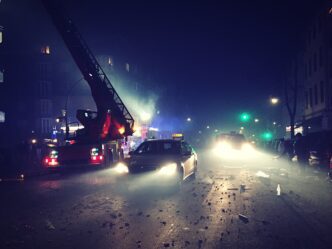Executive Summary
- American Samoa and Tuvalu remain on red alert for Dengue fever outbreaks with co-circulating serotypes.
- Queensland Health issued measles alerts linked to a major concert event in Brisbane.
- Papua New Guinea faces challenges containing a Polio outbreak with vaccination rates below 50 percent.
- The United States and Canada report significant measles caseloads, with Canada citing over 5,000 infections.
- Hawaii authorities are monitoring a second confirmed case of H5N1 avian influenza in wildlife.
Health authorities across the Pacific region and associated nations have issued comprehensive epidemiological updates as of November 18, 2025, signaling continued red alerts for Dengue fever and Polio in specific jurisdictions. The reports, aggregated by regional surveillance bodies, highlight a complex landscape of vector-borne and vaccine-preventable diseases affecting American Samoa, Papua New Guinea, Australia, and North America.
According to the American Samoa Department of Health, a public health emergency remains in effect following a Dengue outbreak declared in July 2025. Officials have confirmed 381 cases, with laboratory analysis by the Hawaii State Laboratory identifying the co-circulation of DENV-1 and DENV-2 serotypes. While hospital admissions have decreased, the territory maintains a red alert status. Similarly, the Tuvalu Department of Health reports 241 confirmed Dengue cases with a red alert in effect for DENV-2, although authorities note that 98 percent of cases have recovered.
In Australia, Queensland Health has issued urgent public health alerts regarding an ongoing measles outbreak. Authorities identified exposure risks associated with the "Jelly Roll Concert" held at the Brisbane Entertainment Centre on October 24, 2025. Queensland has recorded 30 cases year-to-date. Simultaneously, the United States Centers for Disease Control and Prevention (CDC) reported 1,723 measles cases across 43 jurisdictions, resulting in three confirmed deaths. Data from the Government of Canada indicates 5,208 cases, identifying it as the country with the highest reported caseload in the Americas region.
The National Department of Health in Papua New Guinea continues to battle a vaccine-derived poliovirus type 2 (cVDPV2) outbreak. Since the initial declaration in May 2025, five human cases of paralytic poliomyelitis have been confirmed. Despite two rounds of national immunization campaigns, surveillance data shows vaccination coverage remains around 47 percent, significantly below the 95 percent target required to halt transmission.
Additional biosecurity concerns were noted in Hawaii and Guam. The Hawaii Department of Health confirmed a second case of highly pathogenic avian influenza (H5N1) in a migratory duck on Maui, though the risk to humans remains low. Meanwhile, the Guam Department of Public Health and Social Services reported the highest surge of influenza cases in 30 years, with 412 cases recorded in early November.
Regional Biosecurity and Response Analysis
The simultaneous persistence of vector-borne diseases like Dengue and vaccine-preventable illnesses such as Measles and Polio underscores significant challenges in regional health infrastructure. The inability to reach herd immunity thresholds in Papua New Guinea highlights a critical vulnerability in the fight against Polio, while the widespread distribution of Measles in North America and Australia suggests gaps in immunization maintenance among developed nations. Health officials emphasize that the trajectory of these outbreaks will depend heavily on community adherence to vector control measures in the Pacific islands and vaccination uptake in continental jurisdictions to prevent further cross-border transmission.






